by Ryland Walker Knight
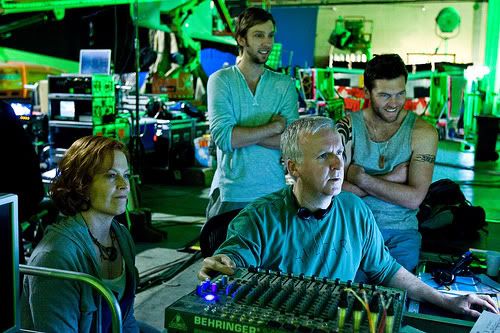
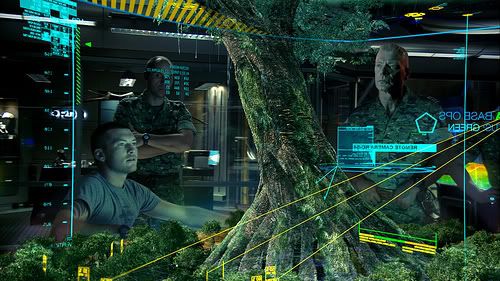
—When I click this...Like
Broken Embraces, you know exactly what you're getting from
Avatar. Yet, with Pedro Almodovar, you only get about five great images and one classic finale sight-meld that changes perception. With Cameron's film, a visionary chunk of neon folly if ever there was one, almost every second behind those 3-D goggles got my eyeballs going gaga and groggy with gorgeous goof city grand larceny light shows of gigantic gestures all swooped and folded and lit up beyond pure spectacle into something truly immersive. I was wiped, wiping my eyes walking out of that early-AM, first-possible IMAX showing Friday morning. It's about as tiring an epic as has come out since that other great film of the decade about embodiment,
Pirates 2 (and, yes,
No. 3, which is more tiring but not quite as good).
By now you probably know what Cameron's movie is about (bad military, good natives; yawn), so I don't need to waste your time with the waste of time story highlights. Rather, we ought to focus on the real excuse for this behemoth: to light your eyeballs full of a frenzy. Because, it goes without saying, though everybody will/has, James Cameron cannot write for shit, has no political sensibility other than guilt, and wouldn't know how to differentiate between myth and cliché if asked in the right (pointed) way. What he
can do is make a few images, and build a movie, however silly, with all kinds of cool tools. He's also been pointed in the right direction of a few bits of theory, it seems, and knows a few things not just about feminism but also about game design and, um, phenomenology. At heart, his story is about seeing as a physical action, a full-bodied embrace of the material world. Again: embodiment. I have to admit that, despite what (little) I knew about the whole "stereoscopic" mumbo jumbo Cameron supposedly invented (and the title, duh), I didn't see
that one coming. Or, at least I did not expect it to be that explicit—nor for it to work.
You expect Pedro Almodovar, in a movie about a now-blind filmmaker, to make the phenomenological film that moves you, not James Cameron. But, save that final image, and Penelope Cruz's force-of-nature performance, nothing really moved me, though a few things tickled me, as much as any number of sights in
Avatar. Physically moved, too: I found myself fudging the 3-D by having to shift my body and cock my head from side to side from time to time just to cope with all that gooey phosphorescence on screen. WIth Pedro's film, I just kept wanting more screen time for that goddess, no matter the narrative cost. See, Pedro's still hung up on plot. But he's only got a few of them to rely on, and the record-skip repeat of this movie is nearly tiring; or, it is whenever Penelope isn't dazzling the frame. All Cameron has to do is push a few motes forward in the "frame" (space? his term, "volume"?) and I get a thrill. That said, only a few of the compositions from the full film linger in my head. It's more about the fluidity of the space, and the visceral invitation it offers, than it is strictly about pictures. In that, I think Sicinski's onto something with that three-tweet rave (
starts here) about "making plot just what it should be: an excuse to go nuts on viewers' skulls."
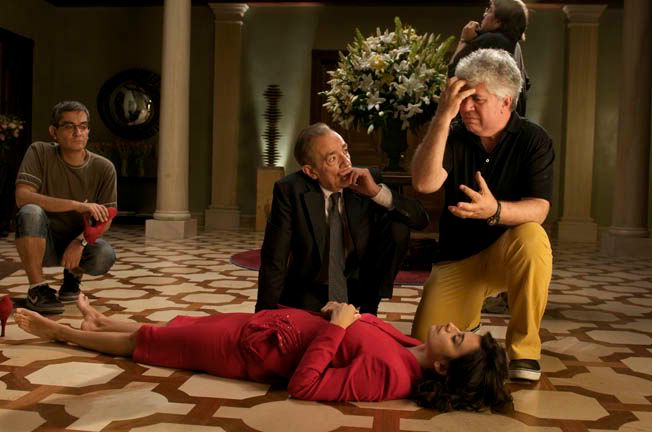
—From here! Last year I had a similar positive reaction to
Speed Racer, but I know that movie, though maybe more adventurous, is nowhere near as successful. It's a little too cut-out cartoony, and its timing is all off. Say what you will, and I know it's long (and there's no getting around that, of course), but
Avatar never drags. It just weighs a ton for a fleet film. And that's because it expects your eyes to do things they're not used to doing.
—Least of all in a multiplex! In any event, this rapture, though felt, is still nothing compared to the sheer joy of
Fantastic Mr. Fox. There's a film jam-packed with detail to keep you pinballing around the frame for daze on end, every frame a treat—and all in under 90 minutes. But that's another story for another time. (Maybe later in the week.) For now, I'm just adding my ramble to the ruckus out there, getting giddy at the thought of fluorescent aerial jellyfish and all kinds of eco-electrical networks of lights to make me and you and everyone dizzy with dumb grins. What a gift!
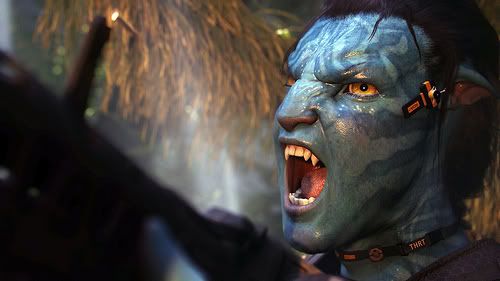
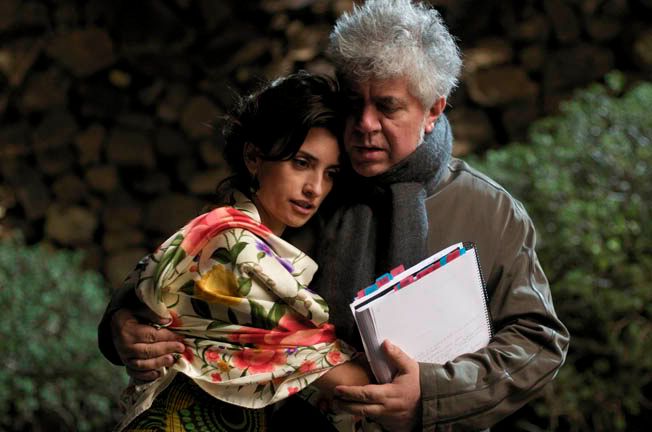 [Broken Embraces opened on one screen, at the Clay, last Friday here in the Bay Area and will roll out to more screens on Christmas. Avatar
[Broken Embraces opened on one screen, at the Clay, last Friday here in the Bay Area and will roll out to more screens on Christmas. Avatar's everywhere. Neither needs my endorsement to make oodles of cash. Though, of course, one will make yet more oodles than the other.]
![]()
![]()
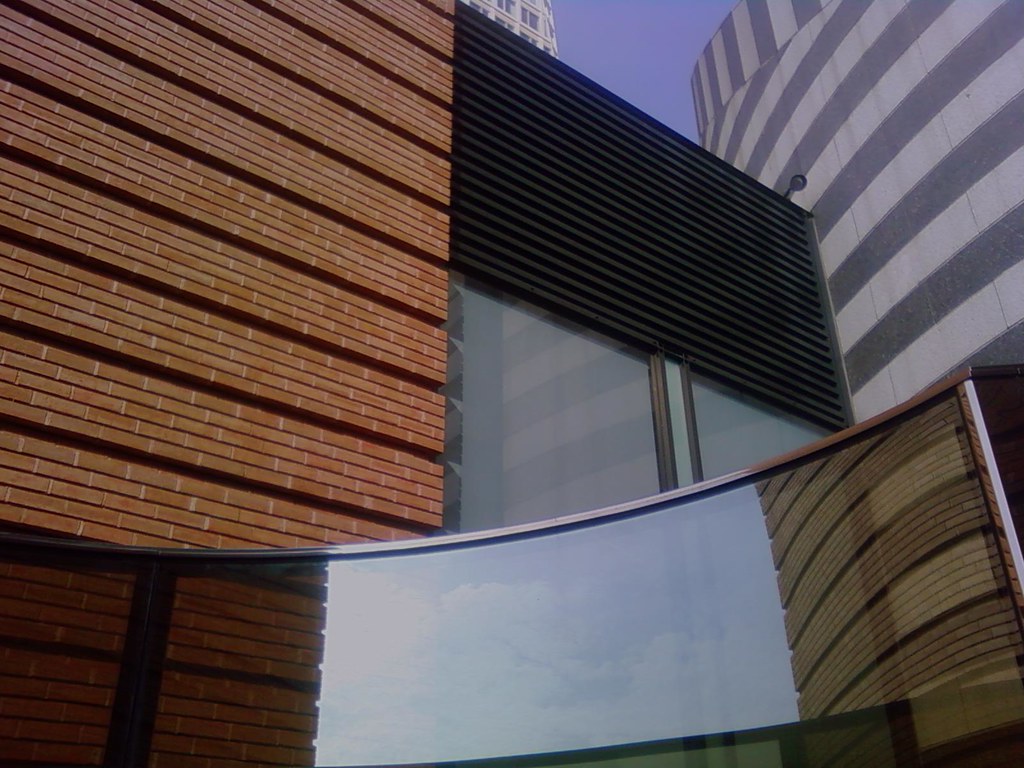



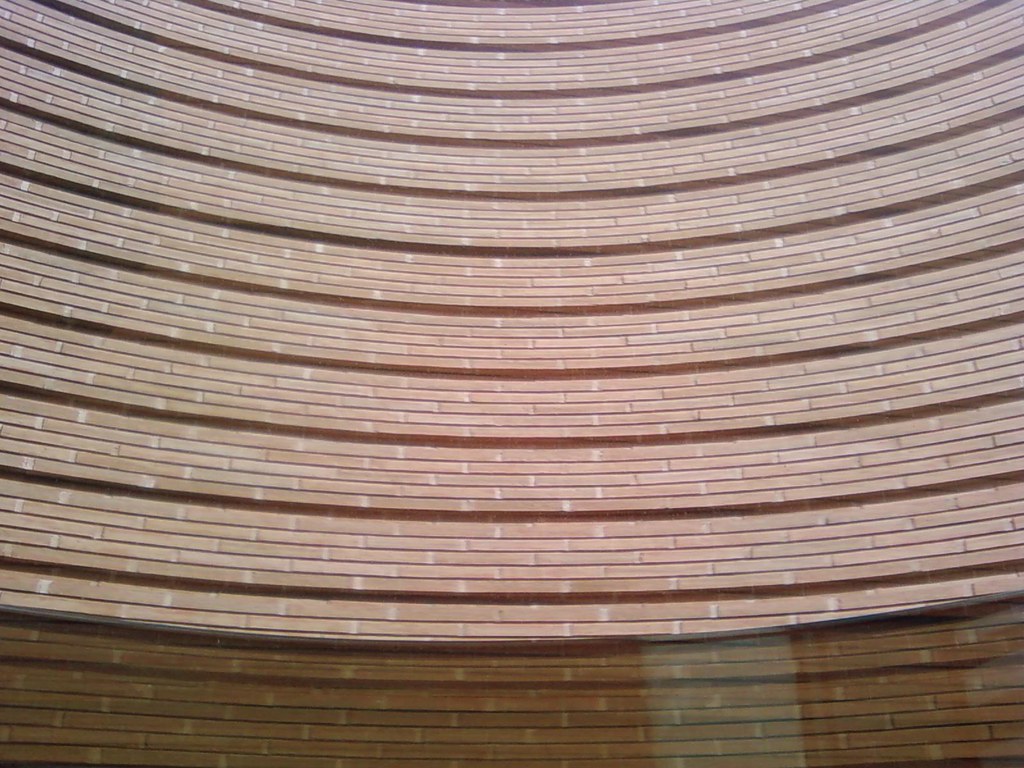


![]()
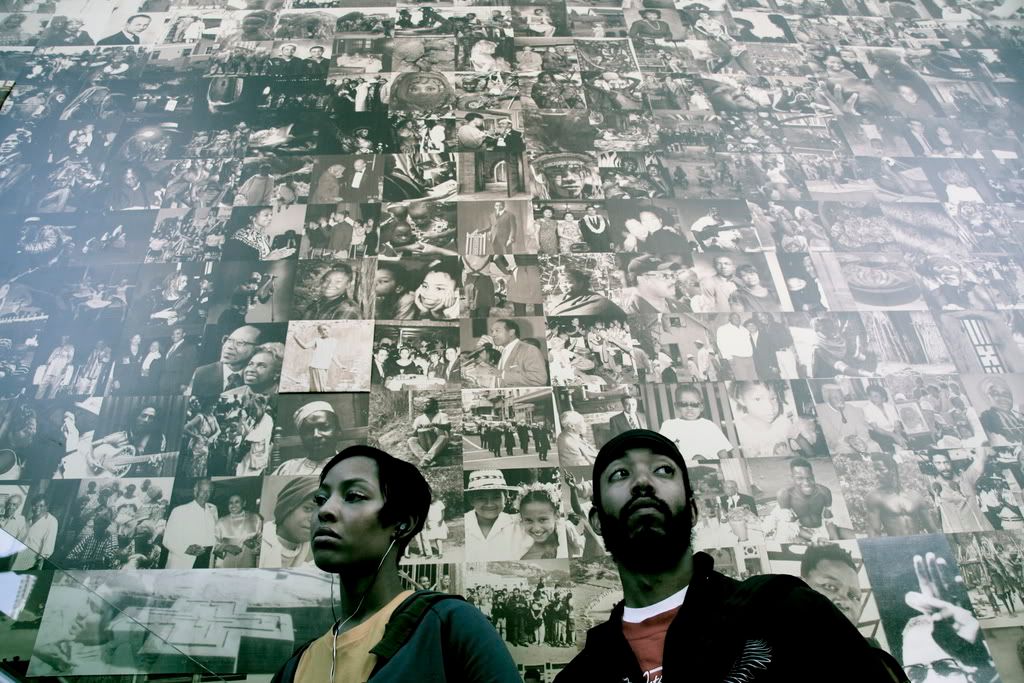
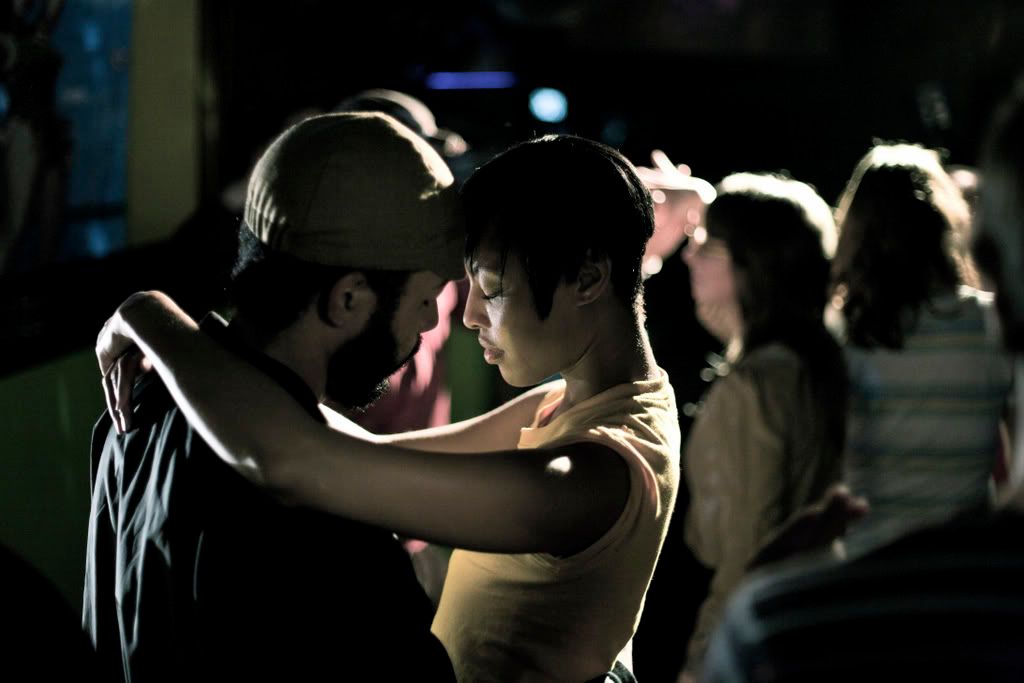
![]()